I grew up outside of Livingston, Montana, three miles up a curvy dirt road. A small creek, teeming with native Yellowstone cutthroats and flanked by bushy willows, paralleled the road, and I started fishing there as a preschooler with my father, planting the seeds of a lifetime obsession. By the time I was 5, I would venture to the stream alone with a rod and jar full of grasshoppers freshly procured from our front yard. On my way out the door, I would tell my parents, “I’m going to get lunch.”
I knew the holes and fundamental principles of reading water, and a grasshopper skewered on a hook was irresistible to those feisty cutthroats, which ranged from finger size to 12 inches. A foot-long cuttie then was equivalent to a 24-inch brown now, not only in its rare size but also its grip on my imagination. I knew they were in there, somewhere, those royal kings of the creek, the big boys. But I was pretty darn happy with a 6-incher, too.
My dad taught me to convert a willow into a stringer. It required a branch with at least two shoots to provide a crook that would ensure the fish wouldn’t slide off after I’d threaded the pliable shrubbery through their gills and out their mouths. On a hot summer day, I would find a shaded stretch of creek and wedge the stringer under a heavy rock or tie it to streamside willows to secure it while the petite trout it held dangled in the water, staying cool for later consumption, as I continued fishing.
Even at that young age I was already developing a fondness — a sense of honor — for these slimy freshwater treasures which later blossomed into a catch-and-release philosophy, so the willows were never in danger of being overburdened. Still, a boy had to eat, and I strung up enough fish to fill my belly and maybe my parents’ as well.
When I was content with the haul, I’d make the short journey back across the road up to our rickety mobile home, where my father, mother and I lived for a couple of years while they were building a log home on the property with help from an army of friends. In the yard, I would clean the fish with my trusty Swiss Army knife, leaving the gut piles out for the magpies, including one we had domesticated as a baby and adopted as our household pet: Maggie.
Maggie the magpie was also my hiking partner when I explored the rattlesnake-riddled hills behind our home. My parents could track me by watching Maggie, who would circle overhead as I trudged along, investigating chokecherry groves and stopping to drink from a natural spring flowing out of a narrow opening in the hillside. While she patrolled by air, my dog, a chunky mutt who ate chokecherries with me, surveyed the ground, keeping an eye out for snakes.
Despite my pets’ selfless caretaking efforts, I don’t recall repaying them by sharing my fish beyond the innards. Instead, after cleaning the trout, I would season their skin and flesh with salt and pepper and cook them in a toaster oven on high heat so the skin would be crispy and the meat moist. Then I had lunch. It didn’t occur to me that other kindergarteners likely weren’t harvesting and preparing their own meals or trusted with sharp hooks and knives.
In my mind, I was an intrepid voyager navigating a vast wilderness with only a rod and knife as means for survival. It wasn’t until I was a teenager that my father told me he would sneak behind and keep watch over me through the willows. He wanted me to believe I was doing it alone, and for all practical purposes I was, but he wasn’t releasing a 5-year-old into the wild without supervision, at least not without a few trial runs first. There’s a fine line between instilling life lessons and getting child protective services called.
I cherish the self-sufficiency those early endeavors rooted in me. As an only child, I was happy to fish alone, first on my home stream and later on others around the area, growing increasingly bolder and more knowledgeable of the thorny politics of stream-access rights. Now, as an adult, I never feel lonely without a fishing partner, even on pioneering adventures probing new waters, though that’s not to say I don’t enjoy a buddy by my side, human or canine.
In any case, I developed a laser-like, almost worrisome focus on the task at hand, without the distractions of other people, which has proven valuable in my lifelong pursuit of trout, first with real bugs and then with fake ones. Those formative outings led me to become an angler, not just a guy who goes fishing. Fishing became who I am, not what I do. It’s the foundation of my essential being: how I view the natural world and our place in it; how I form my political and social leanings; how I approach my career; where I choose to reside and play and whom I do it with; where I go to cope; how I think and live.
Years of drought ravaged that little creek and decimated its fish population. Some years ago, when I visited my father, who still lives in the same log home, I tied on the go-to fly of my youth, a Royal Wulff, and headed down to the stream. I had heard of the changes but refused to believe them. A tremendous sense of loss overtook me as I vainly dropped my fly on silt-choked, barren waters that once, to a wide-eyed boy, seemed infinite in their bounty. It was as futile as summoning a loved one from the dead.
But, as we’ve learned from departed loved ones, the past is never really gone. It’s lingering in our memory, ingrained in our blood and bones. It’s hiding in the willows and circling overhead, watching over us. It’s why we are who we are. And, thankfully, I will never be anything else.

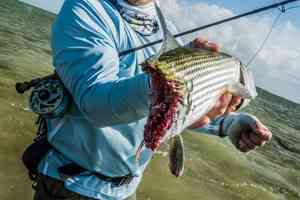
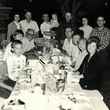


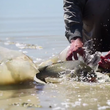


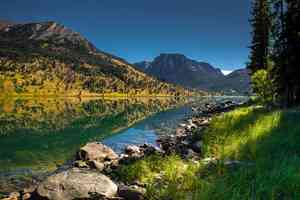
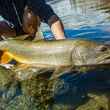

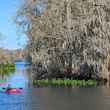
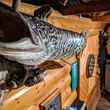
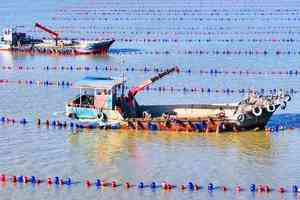
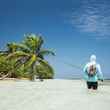

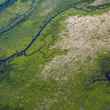
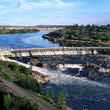



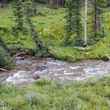



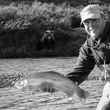

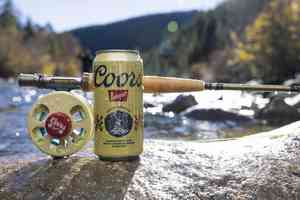

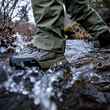
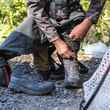
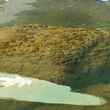
Comments
Carly A Ogata replied on Permalink
Because of the way this was wonderfully written I too became sad when I read how fatal the draught had been to the creek. Thank you for taking my mind to a place few get to go.
DSA replied on Permalink
Poingant and well-written. The story leaves me wondering about the environmental factors behind the creek's decline at the end. You don't say if animal grazing or other factors are at play, or if your special creek is a victim of the warming climate. I went through Livingston, MT last summer and it was well over 100 degrees Fahrenheit at midday. I love cutthroat trout, and their decline in your home stream fills me with sadness.
Hexmeister replied on Permalink
Lovely. What writing about fishing and the outdoors should be but far too seldom is--a meditation on the nature of life itself.
Beverly A. LoPorto replied on Permalink
I love the way your writing takes me to the places where you are. As I read, I could hear you crunching through the brush and the plop of your line hitting the water. It was a time etched into your memory and now, through your eyes, etched into mine. Thanks, Myers!
Gretchen Fay replied on Permalink
Beautifully written. A few years back I was in Paradise Valley and fished Mill Creek and the Yellowstone. Your story reminds me of being up near Mill Creek and catching cut throats. Absolutely BEAUTIFUL country.
Mike Lundrigan replied on Permalink
Your well written memories brought back mine! I am retired now but when I was a boy
and five years old, I did the same sort of exploring and "troutin" but for Brooke's and with worms! It was in Newfoundland not Montanna but our experiences were not too dissimilar! My parents neve worried in those days and nothing bad ever happened! It raised me to be self reliant and have a love of nature which I still have to this day! I hope
your drought ends soon and the waters come back full of trout.
Jeff Martin replied on Permalink
"You can never go home" ....No truer words were ever spoken, in reguards to our child hood haunts. I grew up as a ferrel child on a small farm in central Pennsylvania. Retuning now to the backyard stream of my youth brings only tears to my eyes.
Paul O'Keefe replied on Permalink
I had a very similar experience when perhaps 20 years ago, I drove with my son from northern Wisconsin to the Livingston and South over a very rocky road to the Boulder River. We caught many small cutthroat trout. It was a memorable experience that I will cherish. My son is grown with five children, but I am sure he recalls our trip with the same fondness.
Pages